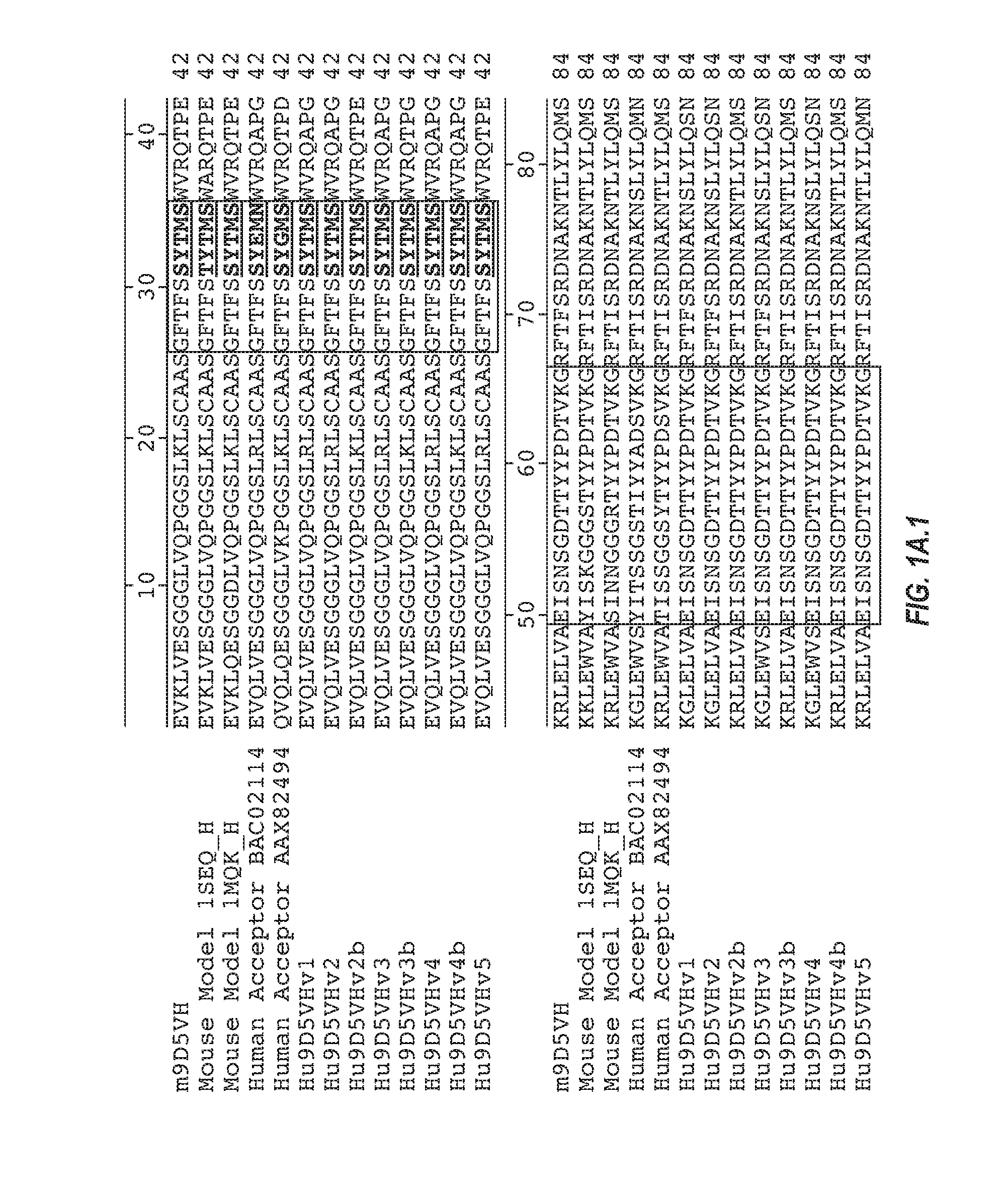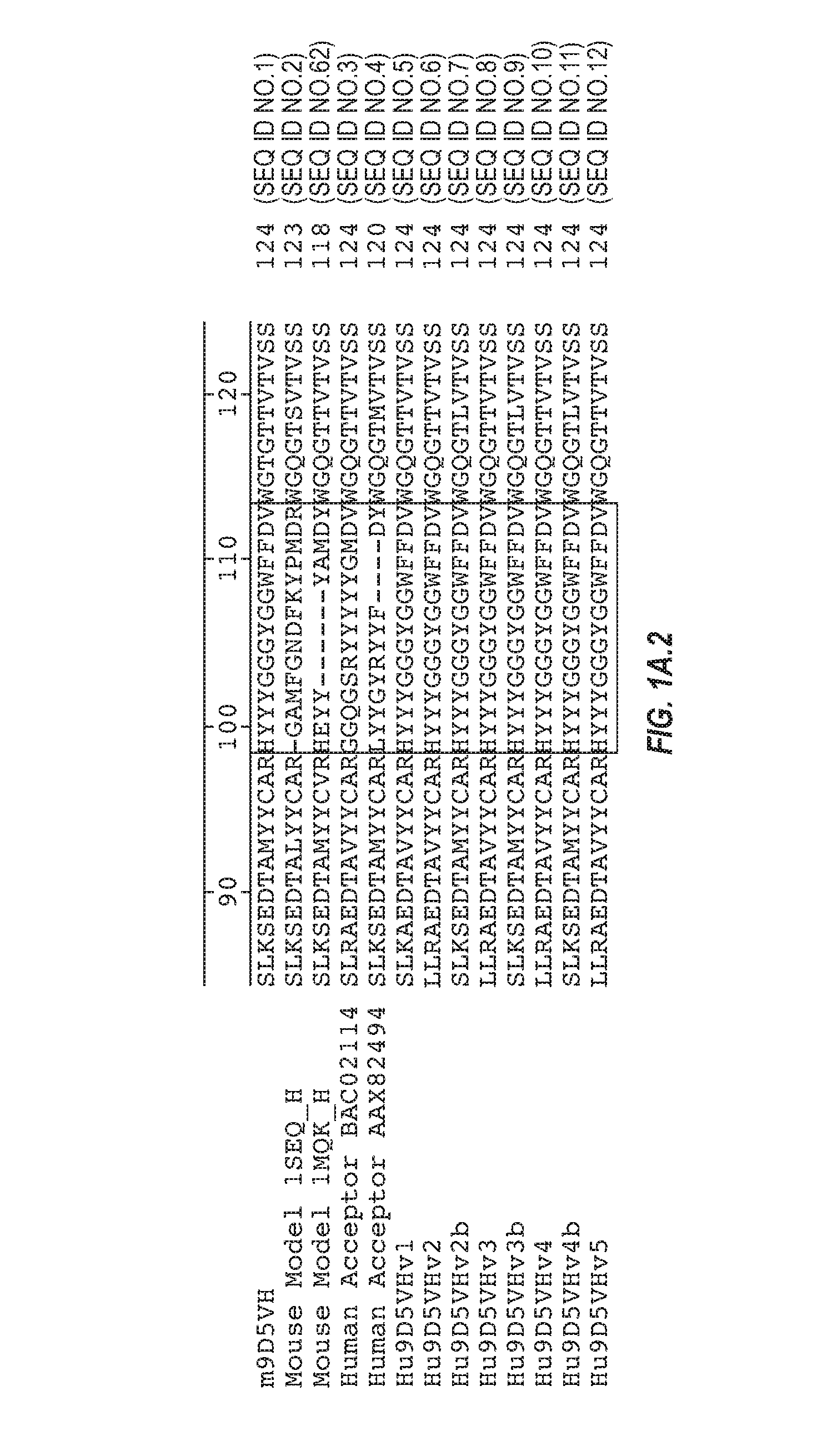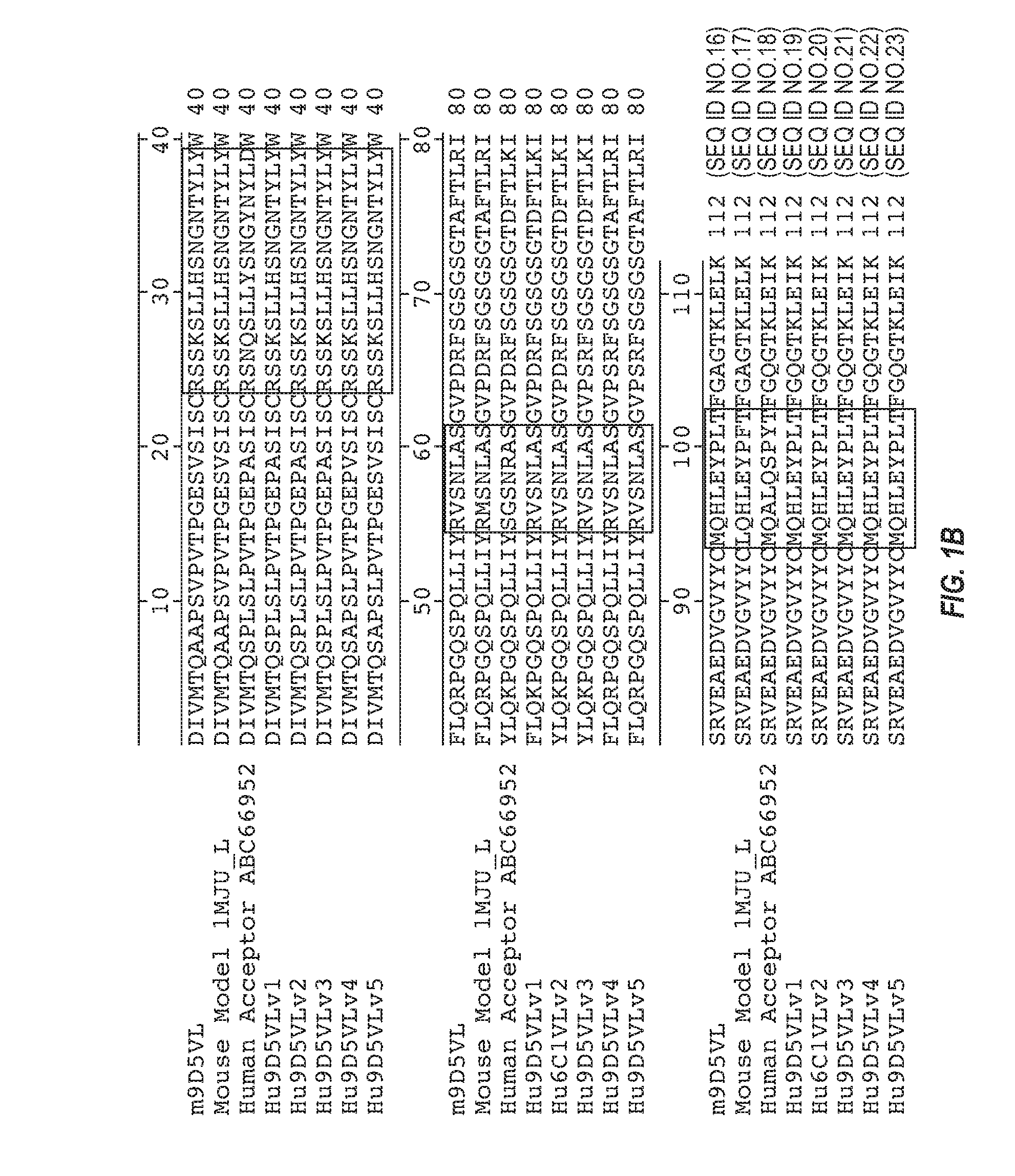Anti-transthyretin antibodies
- Summary
- Abstract
- Description
- Claims
- Application Information
AI Technical Summary
Benefits of technology
Problems solved by technology
Method used
Image
Examples
example 1
Identification of Mis-TTR Monoclonal Antibodies
[0317]Conformationally-specific monoclonal antibodies against monomeric, mis-folded, fibril, or aggregated forms of TTR (mis-TTR) were generated, screened, expressed, and purified as described in Materials and Methods (a-d). In order to generate mis-TTR monoclonal antibodies, the crystal structure of human tetrameric TTR was examined to find regions of the protein that are buried in the tetramer, but exposed upon dissociation of the tetramer into its monomeric subunits. The region identified was residues 89-97 (EHAEVVFTA) (SEQ ID NO: 113) located within the F strand of TTR and sequestered at the dimer interface of the tetrameric protein. A BLAST search of the protein database did not reveal any other human proteins possessing this sequence.
[0318]A peptide comprising this sequence (ggEHAEVVFTAggkg) (SEQ ID NO: 114), was synthesized. Capitalized letters represent residues 89-97 of TTR. Lower case letters represent additional linker residu...
example 2
Binding of Mis-TTR Antibodies to TTR Antigen
[0322]Four lead mis-TTR mAbs (9D5, 14G8, 6C1, and 5A1) were assayed by ELISA at concentrations ranging from 0.31 to 2.5 μg / ml using both pH4.0-treated TTR (pH4-TTR) and native TTR as the coating antigen. TTR antigen preparation and ELISA protocols are described elsewhere in Materials and Methods (e-g).
[0323]The resulting binding curves and tabulated Ka and Bmax values are shown in FIG. 3 and Table 3 below. The results in FIG. 3 are presented in arbitrary units (a.u.) on the y-axis. All mAbs showed significant binding to pH4-TTR with Kd values ranging from 16 nM (6C1) to 282 nM (9D5). Bmax values for binding to pH4-TTR ranged from a low of 0.65 a.u. (14G8) to a high of 2.02 (9D5). In contrast to the binding to pH4-TTR, none of the antibodies showed significant binding to native TTR, indicating that all TTR antibodies generated were specific for non-native forms of TTR.
TABLE 3ELISA Analysis of Lead mis-TTR AntibodiesBinding to pH4-TTRmAbKd (...
example 3
Analysis of Mis-TTR Antibodies by SDS-PAGE and Native-PAGE
[0324]9D5 and 14G8 were analyzed by SDS-PAGE / Western to demonstrate specificity of binding toward monomeric / denatured forms of TTR versus native, non-denatured TTR. SDS-PAGE, Native-PAGE, and Western Blot protocols are described elsewhere in the Methods and Materials (h-j).
[0325]Non-denatured TTR or pH4-TTR was run on an SDS-PAGE gel alongside heat-denatured TTR and heat-denatured pH4-TTR. After electrophoresis, the gel was Western blotted onto nitrocellulose and stained with TTR mAbs 9D5 and 14G8. Both antibodies only recognized TTR when it was treated at pH4 or when TTR or pH4-TTR was first heat-denatured prior to SDS-PAGE. These 9D5 and 14G8 thus show a specificity for TTR conformers generated either by denaturation of TTR or by treatment of TTR at pH4.
[0326]6C1 and 5A1 along with total TTR mAbs (7G7, 8C3) and the commercially available Sigma polyclonal antibody were also analyzed by SDS-PAGE / Western. Each blot contained s...
PUM
| Property | Measurement | Unit |
|---|---|---|
| Fraction | aaaaa | aaaaa |
| Fraction | aaaaa | aaaaa |
| Fraction | aaaaa | aaaaa |
Abstract
Description
Claims
Application Information
 Login to View More
Login to View More - R&D
- Intellectual Property
- Life Sciences
- Materials
- Tech Scout
- Unparalleled Data Quality
- Higher Quality Content
- 60% Fewer Hallucinations
Browse by: Latest US Patents, China's latest patents, Technical Efficacy Thesaurus, Application Domain, Technology Topic, Popular Technical Reports.
© 2025 PatSnap. All rights reserved.Legal|Privacy policy|Modern Slavery Act Transparency Statement|Sitemap|About US| Contact US: help@patsnap.com



